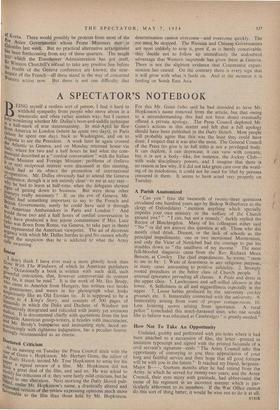Doctored Criticism • ta_At its meeting on Tuesday the Press
Council dealt with the theser,of Gunn v. Hopkinson. Mr. Herbert Gunn, the editor of pai,"ailY Sketch, invited Mr. Tom Hopkinson to write for his te a signed review of a film. Mr. Hopkinson did not greya great deal of the film, and said so. He was asked to agreg his criticisms of it; they were fairly mild criticism, but he lishecr to one alteration. Next morning the Daily Sketch pub- , under Mr. Hopkinson's name, a drastically altered and "Pau . too ded version of the review expressing opinions much more urable to the film than those held by Mr. Hopkinson. For this Mr. Gunn (who said he had intended to have Mr. Hopkinson's name removed from the article, but that owing to a misunderstanding this had not been done) eventually offered a private apology. The Press Council deplored Mr. Gunn's actions in this matter and felt that a full apology should have been published in the Daily Sketch. Most people will probably agree that this was the least they could have done; I suspect that it was also the most. The General Council of the Press (to give it its full title) is not a privileged body. It can deplore, it can deprecate, it can view with concern; but it is not a body—like, for instance, the Jockey Club— with wide disciplinary powers, and I imagine that there is no reason in law why, if it did not take great care over the word- ing of its resolutions, it could not be sued for libel by persons censured in them. It seems to have acted very properly on Tuesday.










































 Previous page
Previous page